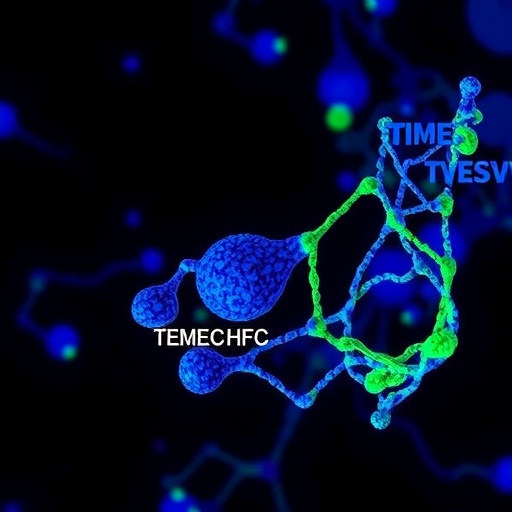In a groundbreaking study published in BMC Cancer, researchers have unveiled the crucial role of TMEM88 in regulating the proliferation and metastasis of hepatocellular carcinoma (HCC), potentially opening new avenues for prognosis and therapy. HCC, recognized as one of the most prevalent and deadly malignancies worldwide, continues to present significant clinical challenges despite advancements in targeted treatments and immunotherapies. This investigation spotlights TMEM88, a transmembrane protein, revealing its tumor-suppressive capabilities and its intricate involvement in the GSK-3β/β-catenin signaling pathway, a critical cascade implicated in cancer progression.
Hepatocellular carcinoma’s lethality is compounded by its typically late diagnosis and resistance to conventional therapies, underscoring an urgent need for novel molecular targets. TMEM88 has garnered attention due to its diverse roles in tumor biology across multiple cancer types, yet its mechanistic function in HCC remained elusive. The current study undertook a comprehensive examination of TMEM88 expression patterns in 72 patient-derived HCC tumor samples versus corresponding adjacent non-tumoral liver tissues, employing quantitative PCR and Western blot analyses to quantify mRNA and protein levels respectively.
The data unveiled a striking correlation between elevated TMEM88 expression and improved patient outcomes, including significantly enhanced overall survival and recurrence-free survival rates. Moreover, higher TMEM88 levels were consistently linked with lower alpha-fetoprotein (AFP) concentrations, a conventional biomarker for HCC prognosis, as well as more favorable histopathological grading. This finding positions TMEM88 not only as a marker of tumor biology but also as a potential prognostic biomarker capable of refining clinical stratification in HCC management.
Functional assays conducted in vitro further elucidated TMEM88’s impact on tumor cell behavior. Overexpressing TMEM88 in HCC cell lines notably suppressed proliferative capacities and migratory potential, critical hallmarks of cancer aggressiveness and metastatic competence. These cellular alterations were accompanied by a marked reduction in the proportion of cells occupying the S phase of the cell cycle, indicating a cell cycle arrest mechanism underlying growth inhibition.
Diving deeper into the molecular underpinnings, the researchers focused on the Wnt/β-catenin signaling axis, long established as a pivotal driver of hepatocarcinogenesis. TMEM88 overexpression was found to potentiate the activity of glycogen synthase kinase-3 beta (GSK-3β), a key kinase responsible for targeting β-catenin for proteasomal degradation. Consequently, diminished β-catenin stabilization was observed, translating into attenuated transcriptional activation of downstream oncogenic genes. This mechanistic insight highlights TMEM88’s function as a modulator capable of repressing aberrant Wnt signaling, thereby restraining cancer progression.
The therapeutic potential of TMEM88 was further corroborated using in vivo xenograft models, where forced expression of TMEM88 led to substantial inhibition of tumor growth. These murine studies provide compelling evidence that reactivating or mimicking TMEM88 function could suppress tumor expansion, offering a promising strategy for targeted molecular therapy in HCC patients exhibiting low TMEM88 expression.
This research significantly advances the understanding of TMEM88 as an intrinsic tumor suppressor in hepatocellular carcinoma. By linking higher TMEM88 expression with both improved clinical prognosis and mechanistic suppression of key oncogenic pathways, these findings advocate for TMEM88’s development as a dual-purpose molecule: a biomarker for treatment response and a candidate for therapeutic innovation.
Notably, the relationship between TMEM88 and the GSK-3β/β-catenin pathway underscores the broader biological context where modulation of Wnt signaling may serve as a universal principle in cancer control. Targeting this pathway has been a longstanding goal in oncology, yet clinical translation has been hampered by complexity and toxicity concerns. TMEM88’s endogenous regulation of this signaling cascade offers a refined and potentially safer approach to this challenge.
Prospective clinical applications could utilize TMEM88 expression levels as part of a biomarker panel to customize treatment decisions, particularly in distinguishing aggressive from indolent HCC forms. Furthermore, therapeutic agents designed to enhance TMEM88 activity or replicate its inhibitory effects on β-catenin could complement existing modalities, potentially enhancing efficacy and overcoming resistance phenomena.
Future research should aim to validate these promising findings in larger, multi-center patient cohorts to strengthen clinical relevance and address heterogeneity inherent to HCC. Additionally, dissecting TMEM88’s interactions with other signaling networks could illuminate combinatorial strategies to maximize tumor suppression. Understanding TMEM88’s regulation and functional domains might also aid in the rational design of synthetic analogs or gene therapy vectors.
In conclusion, the discovery of TMEM88’s modulatory role presents a significant leap in hepatocellular carcinoma research. This study bridges molecular insights with clinical prognosis, offering hope that targeting TMEM88-mediated pathways may one day translate into improved survival and quality of life for HCC patients, a population urgently in need of more effective therapeutic options.
Subject of Research: Hepatocellular carcinoma (HCC), TMEM88 protein, GSK-3β/β-catenin signaling pathway
Article Title: TMEM88 modulates the proliferation and metastasis of HCC via the GSK-3β/β-catenin pathway
Article References:
Zhang, J., Chen, X., Li, W. et al. TMEM88 modulates the proliferation and metastasis of HCC via the GSK-3β/β-catenin pathway. BMC Cancer (2025). https://doi.org/10.1186/s12885-025-15286-3
Image Credits: Scienmag.com
DOI: https://doi.org/10.1186/s12885-025-15286-3




